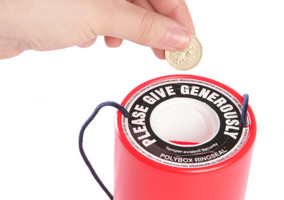More people gave to NHS charities and hospices last month, while donations to animal and children charities fell, a survey has found.
The Charities Aid Foundation (CAF) surveyed 1,105 people via YouGov between 20-23 April. It found that more than a third (35%) of those who had given to charity in the previous four weeks had donated to hospital charities and hospices.
This was a significant increase both against the long-term average (21%) and against March figures (22%).
CAF said that respondents mentioned Colonel Tom’s fundraising appeal and supporting NHS charities as examples of their donations.
Charities operating in other areas have seemingly suffered as a result. Only 23% of donors said they had donated to animal charities (against 31% in March). Children and young people were mentioned by 18% of donors, against 21% in March and a long-term average of 26%.
Other causes that saw decreasing donation levels in April were medical research (down to 19% from 26% in March), support to disabled people (from 15% to 8%), physical and mental health care (from 16% to 10%) and homelessness (from 23% to 18%).
The research only looked at what causes individuals donated to, and not at how much they gave.
Overall giving levels 'have remained high'
One in three (34%) respondents said they had donated to charity in the previous four weeks, up from 30% in March. According to CAF, this shows that “despite economic uncertainty and worries about job security felt by many across the country, overall levels of giving to charity have remained high”.
Ben Russell, director of policy at CAF, said: “The British people continue to demonstrate the UK’s history of remarkable generosity and these figures are no exception.”
Last week, data from charity payment company Rapidata found that, while new direct debit sign-ups were significantly down in April, existing regular donors mostly stuck with their charities and avoided cancelling their direct debits.
CAF also said its survey shows it will be necessary to support charities that are not on the immediate frontline.
Russell added: “The willingness to help the dedicated NHS staff and the charities that support them shows the openheartedness and care the country feels towards people in great need and an inherent desire to stand with those on the frontlines.
“As we recover from this crisis, we will also need to think about how we maintain the tens of thousands of other charities working on so many issues which make a difference to all our lives because we’ll need them more than ever.”
Related articles












